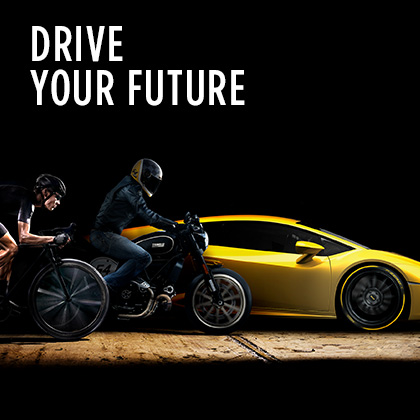Rain-interrupted debut for new experimental hard tyre
Just two weeks after rain interrupted free practice at Silverstone, there were showers once again at Hockenheim for the first two free practice sessions at the German Grand Prix. This time however there was some dry running in the morning, enabling the teams to gather very limited information about the new experimental hard compound tyre, which was tested in free practice along with the usual allocation of 11 slick tyres for the weekend. The compounds nominated for the German Grand Prix are the P Zero White medium and P Zero Yellow soft. The experimental hard tyres are returned this evening, meaning that the teams will not be able run on them for the rest of the weekend. The intermittent showers during free practice one meant that teams were often restricted to 10-minute runs, before the changing conditions made it too complex to properly evaluate tyres and parts. The teams tried the experimental hard and the medium slick tyres in the morning, while the two Sauber drivers, as well as McLaren’s Lewis Hamilton, also ran on the Cinturato Green intermediate. The fastest time of the morning was set by McLaren driver Jenson Button, who established a benchmark of 1m16.595s on the medium tyre at the very beginning of the session, when the track was dry. He beat Hamilton in the runner-up spot by half a second, who set his time when the track dried out at the end of the session on an identical tyre. The teams had planned to run on the soft tyre in the afternoon, in conditions that should theoretically be closer matched to the race, but then the rain fell even harder. This meant that the majority of drivers did not venture out until the last hour of the hour and a half session in order to avoid the worst of the standing water, running on the Cinturato Blue full wet tyre. As the track dried, the drivers progressively moved onto the intermediate tyre, with Mercedes driver Nico Rosberg the first to make the switch and immediately going quickest. More rain fell in the last half hour, meaning that nobody got the chance to run on the slicks in the afternoon. With conditions never drying out fully, Williams driver Pastor Maldonado set the fastest time of 1m27.476s in free practice two on the intermediate tyre: more than 10 seconds slower than Button’s time in the morning. The session was red-flagged with five minutes to go after Michael Schumacher went off in his Mercedes. Conditions are expected still to be wet for qualifying tomorrow but the race on Sunday should be held in dry conditions, meaning that many drivers could be heading into the grand prix with very little dry running behind them at Hockenheim – particularly on the soft tyre. Pirelli’s motorsport director Paul Hembery commented: “After the British Grand Prix, most people had seen enough rain but it was back! This morning was a very different situation to Silverstone though, with the track drying up rapidly between showers – it was not quite wet enough for the intermediate tyre – and there was some dry running as well. The afternoon was much wetter, but this very wide range of conditions allowed teams to assess the crossover point between slicks, intermediates and wets, which could be vital information for qualifying in particular. We have never competed at Hockenheim in Formula One before, so it was important to try and gain as much information as possible – particularly because we had three slick compounds running today for the first time this year. The variable conditions meant that the drivers were not able to draw many firm conclusions about the experimental tyre, but with more changeable weather expected tomorrow, this was far from being a wasted day in terms of information gathered". Pirelli numbers of the day: Sets used overall: New Hard 34 Medium 24 Soft 0 Intermediate 25 Wet 24 Highest number of laps per compound: New Hard 22 Medium 30 Soft 0 Intermediate 18 Wet 15 Longest runs per compound: New Hard 12 (Vergne) Medium 11 (Vettel) Soft 0 Intermediate 14 (Webber) Wet 12 (Vergne) Pirelli fact of the day: So far this year, there have been fewer and faster pit stops compared to Pirelli’s first season in Formula One. The number of pit stops has increased only at one grand prix, and that was due to the rain and subsequent drying track in Malaysia. At more than half of the first nine grands prix this year, the drivers made one stop less on average than they had in 2011. In total there were 560 pit stops in the first nine races of 2011, compared to 466 in the first nine races this year – despite the fact that the P Zero compounds (apart from the supersoft) have all got generally softer. When it comes to total time spent in the pits, the teams have improved in five races. This year, the fastest pit stops were quicker by an average of 0.688s on eight occasions.















